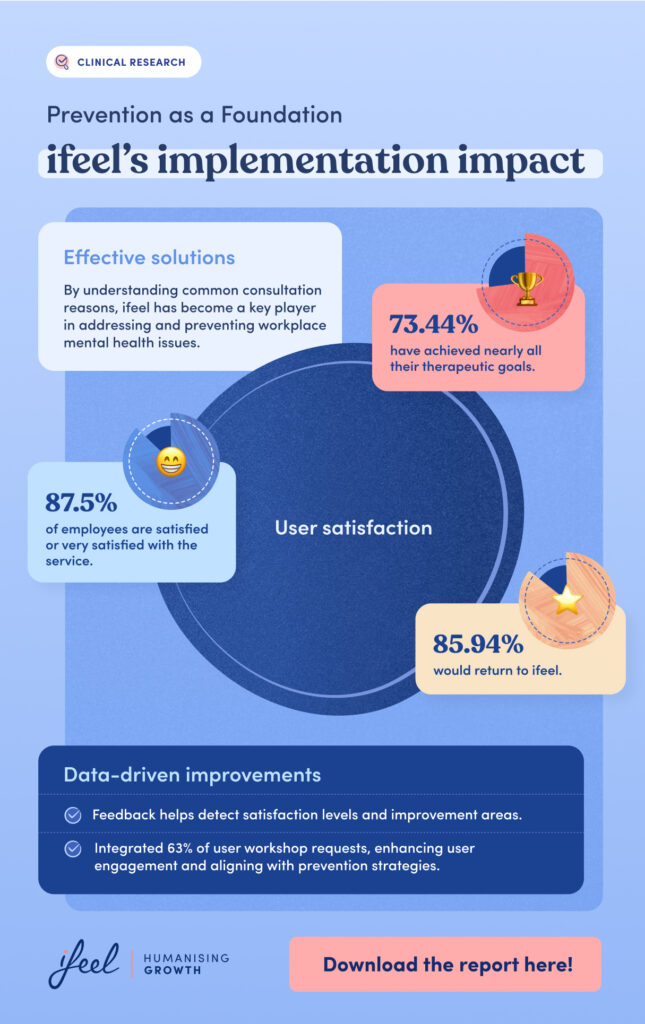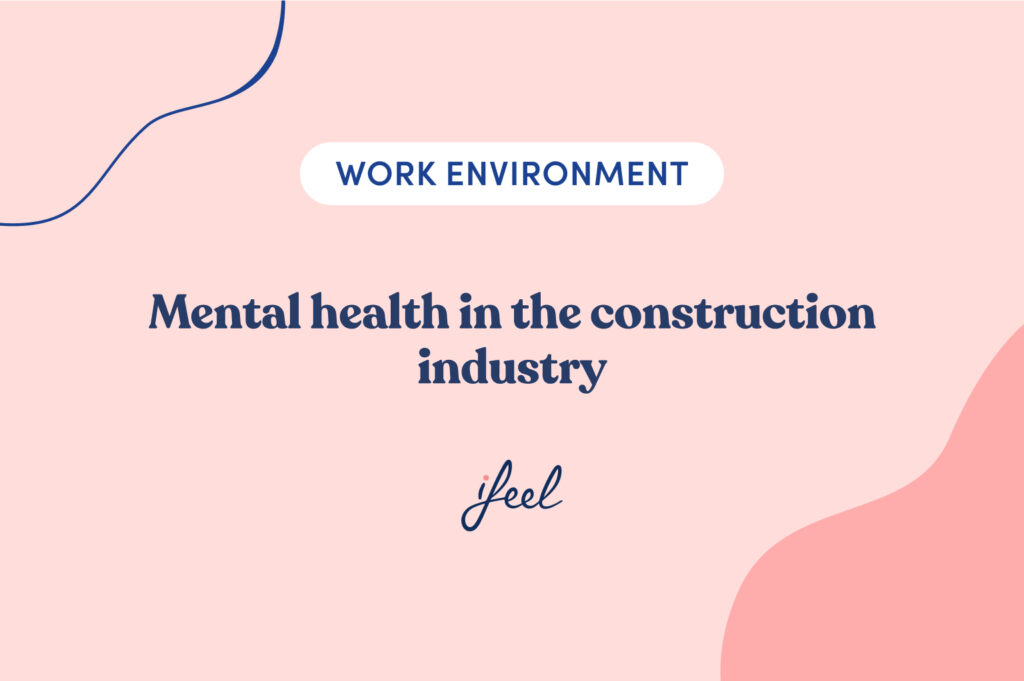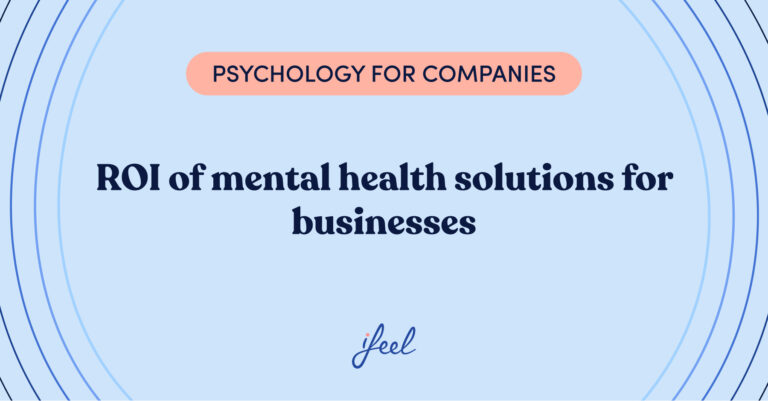Addressing mental health in the construction industry is critical for enhancing productivity and ensuring a supportive work environment. Unlike their white-collar counterparts, blue-collar workers encounter distinct challenges that can significantly influence their mental well-being. Research shows that 73% of the UK’s 2.1 million construction workers have been affected by mental illness. Understanding and tackling these issues requires dedicated strategies and solutions.
Challenges in mental health in the construction industry
construction industry workers face unique stressors that impact their mental health. These include physically demanding work, long hours, job insecurity, and exposure to hazardous conditions. Such environments can exacerbate stress, anxiety, and depression, necessitating targeted interventions for mental health in the construction industry. Studies show that blue-collar workers are more likely to be treated for depression.
- Physical strain: Repetitive tasks and heavy lifting can lead to chronic pain and fatigue, impacting mental health in the construction industry.
- Long working hours: Extended shifts can result in burnout and reduced time for personal life, increasing stress levels among workers.
- Job insecurity: Fluctuating demand and economic shifts can lead to uncertainty about job stability, causing anxiety.
- Hazardous conditions: Exposure to dangerous materials and environments contributes to stress, affecting mental health in the construction industry.
Stigma and its impact on mental health in the construction industry
Stigma surrounding mental health in the construction industry is a significant barrier. Often, there is a perception that seeking help for mental health issues is a sign of weakness, deterring workers from seeking support. Addressing stigma is essential to improving mental health outcomes in the construction industry.
| Common stigmas | Impact on workers |
|---|---|
| Seeking help is weakness | Prevents workers from accessing care |
| Mental health issues are not real problems | Leads to neglect and worsening conditions |
| Only severe issues require attention | Minor issues are ignored, escalating over time |
Benefits of a mental well-being solution in the construction industry
Implementing a mental well-being solution, such as those offered by ifeel, provides significant benefits for mental health in the construction industry. These solutions ensure that support is accessible, confidential, and tailored to individual needs, crucial for workers with varying schedules and limited access to traditional services.
- Accessibility: Digital platforms ensure that support is available anytime, fitting into workers’ varying schedules.
- Confidentiality: Offering private access encourages workers to seek help without fear of judgement.
- Tailored support: Solutions like ifeel provide personalised assessments and referrals to appropriate resources, ensuring each individual’s needs are met.

Steps HR should take to boost mental health in the construction industry
Human Resources departments in the construction industry play a crucial role in promoting mental health. By implementing strategic measures, HR can create a supportive environment that prioritises employee well-being and addresses mental health in the construction industry.
- Raise awareness: Train supervisors and employees about mental health to reduce stigma and encourage open conversations.
- Implement supportive policies: Develop policies that support mental health, such as flexible working hours and mental health days.
- Provide training: Equip managers with the skills to recognise signs of mental health issues and provide initial support or referrals.
- Ensure accessibility: Offer resources like ifeel’s digital mental health solutions, which are accessible anytime, anywhere.
- Regular assessments: Conduct regular mental health assessments to understand employee needs and adjust support accordingly.
The Leadership Lens🔎
Addressing mental health in the construction industry from a leadership perspective is about more than compliance; it’s a strategic initiative. Leaders must create a supportive environment where mental health is prioritised and integrated into company values, showing commitment to mental health in blue-collar industries.
Role model: Leaders should openly discuss mental health, setting a positive example.
Resource allocation: Allocate budget and resources towards mental health initiatives.
Feedback loops: Establish channels for employees to provide feedback on mental health programs.
Checklist for mental health support in the construction industry
| Task | Description |
|---|---|
| Conduct needs assessment | Evaluate current mental health needs and resources available. |
| Develop a mental health strategy | Align mental health initiatives with overall business goals. |
| Launch awareness campaigns | Educate employees about mental health and available resources. |
| Implement training programs | Train managers and staff on mental health awareness and support strategies. |
| Evaluate and adjust programs regularly | Monitor the effectiveness of mental health initiatives and make improvements. |
Creating a supportive environment for mental health in the construction industry
Creating a supportive environment involves more than just policies; it includes fostering a culture of openness and support. Here are practical steps to achieve this for mental health in the construction industry:
- Mental health champions: Identify and train employees to be mental health advocates within the team.
- Safe spaces: Create areas where employees can take breaks and decompress.
- Regular check-ins: Encourage managers to meet regularly with their teams to discuss well-being.
Addressing mental health in the construction industry is crucial for individual well-being and organisational success. By understanding the unique challenges construction workers face and implementing comprehensive mental health solutions, companies can foster a healthier, more productive workforce.
Efficacy of Guided Interventions for Anxiety
Unlock new insights on anxiety management with our latest study on the Efficacy of Guided Interventions for Anxiety. This report evaluates the impact of the Anxiety Guided Path on users, showing a 17.14% decrease in anxiety levels after just four weeks.
Whether participants engaged in virtual support, emotional assistance, or video therapy, the results are clear: anxiety significantly decreases across all groups, with the most anxious individuals experiencing the greatest relief.Want to learn more about reducing anxiety in your team?
Download the full report now and discover how guided interventions can help enhance well-being and productivity in the workplace.

Mental health: The biggest business challenge of our time
At ifeel, we understand that supporting mental health in the construction industry is a strategic investment in workforce well-being and productivity.
To help in this process, our clinical team provides leading companies in their sector with a dynamic, scalable and fully personalised solution, powered by AI. We have a strategy and approach based on key data to help organisations with a global presence address one of the biggest business challenges of our time: mental health at work.
This solution offers employees a mental health care service structured at different levels depending on their needs at any given time. Discover our Resources section, where you will find various materials, such as webinars, podcasts, guides for human resources on current topics, and interviews with leaders of large organisations.
Data-driven methodology
Our mental health solution for enterprises employs evidence-based practices and innovative methods, backed by the latest research and a network of over 600 mental health professionals. Would you like to know more about our Clinical Research Department? Don’t forget to visit this section to stay informed about the latest studies and research on mental health in corporate environments.
We hope you found this article on mental health in the construction industry interesting.
If you would like more information simply request it here. Our team will calculate the ROI based on your enterprise’s specific characteristics.











